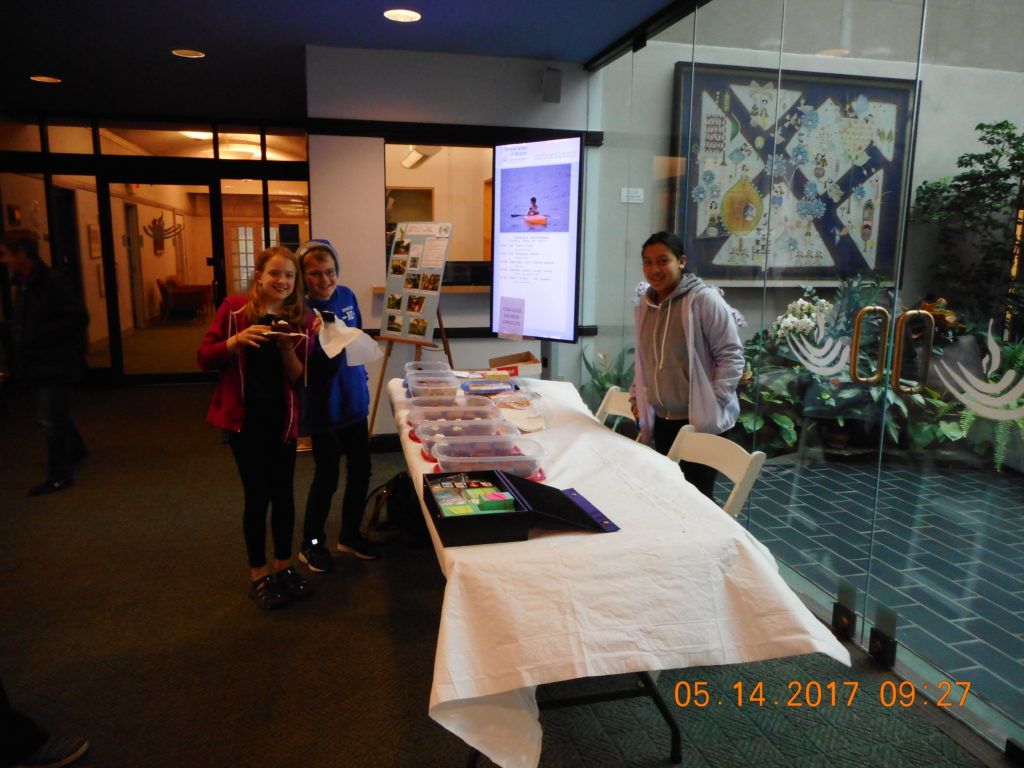Ideas para la Participación de los Jóvenes

- Adopta un invernadero / adoptar una familia (tu nombre se publicará en el sitio web)
- Amigos por correspondencia con niños en Chajmaic
(Podemos enviar dibujos y/o fotos electrónicamente o pueden ser traídos por personas de nuestro equipo que visiten Chajmaic. Las fechas clave son el 15 de marzo, el 5 de abril y el 3 de mayo. También podemos subir las fotos al sitio web. También podemos sacar fotos de familias y publicarlas en el sitio web para que los jóvenes puedan conectarse con niños reales en la aldea.)

- Los jóvenes podrían hacer una venta de pasteles o un lavado de autos o tal vez hacer algo en sus clases de la escuela religiosa para vender.

-
Información adicional sobre la respuesta de Sembrando Oportunidades, “Cómo el Cambio Climático Afecta la Inseguridad Alimentaria de Chajmaic y la Solución Agrícola de Sembrando Oportunidades” está en este enlace.
- Aquí hay algunos recursos para estudiantes sobre el cambio climático y la inmigración.:
- Noticias de la prensa guatemalteca, La Hora:
US to provide US $310 million to Northern Triangle for food insecurity
https://bit.ly/3tXDf2yApril 26, 2021
In the article:
a. “To strengthen the Guatemalan agricultural sector, it will provide US $25 million. It will facilitate access to financing that will allow farmers to rebuild their livelihoods at home in Guatemala.” b. “The Department of Defense will provide US $26 million to increase its partnership activities in the Northern Triangle to provide health, education and disaster relief services. “The two departments that will supply funds are the US Department of Agriculture (USDA) and the Department of Defense (DOD).
- Noticias del Televisión ABC: Sequía centroamericana crea refugiados del cambio climático
Published on Apr 22, 2021
ABC News’ Matt Gutman reports from Guatemala, part of a dry corridor across a once-fertile region that’s helping to fuel a migrant exodus.
Earth Day broadcast by ABC National News, “Central American drought creates climate change refugees” with a focus on Guatemala. Very interesting and informative to see a village up close and hear from residents about their struggles and reasons for migration. Also important to see the fees paid to smugglers–up to $13,000–and the collateral required–a family’s house or farm. A very high stakes journey and one that, according to the report, up to 60% of villagers plan to make because they see no other option.
Look up Jocotan on the map; it’s in the department of Chiquimula in the east, surrounded by Zacapa, Jalapa and Jutiapa, bordering Honduras. That’s a dry region of Guatemala to begin with, made more severe by drought, hurricanes and climate change.
- Sep 5, 2014
UNA MIRADA A CÓMO UN CLIMA CAMBIANTE AFECTARÁ A AMÉRICA DEL SUR Y CENTROAMÉRICA
https://ccafs.cgiar.org/news/look-how-changing-climate-will-hit-south-and-central-america
- Consecuencias del Cambio Climático –
Do a search for: Corredor seco = the dry sector
One source: “The Central American Dry Corridor: a consensus statement and its background,” a research collaboration of Israel and Costa Rica, https://www.revistayuam.com/
- Artículo del grupo HIAS , “Hablemos de Cambio Climático y Refugiados,” Nov 21, 2021, https://bit.ly/30HdqKV
This is the webinar they refer to in the article: “Climate Displacement – The Future of Refugee Protection,” https://vimeo.com/642054469
Puntos clave del artículo de HIAS:
“In October, the Biden administration released a report on climate change and migration which begins to outline options for protection and resettlement of individuals displaced directly or indirectly from climate change. The report recommends the establishment of a standing interagency policy process on Climate Change and Migration to coordinate U.S. government efforts to mitigate and respond to migration resulting from the impacts of climate change.
“[Naomi Steinberg, HIAS’ vice president for policy and advocacy, notes] that the administration’s report marks the first time a U.S. government has officially recognized climate change and migration. But Rosenn said the report was not enough. “We need the government to deliver, not just produce reports,” she said.
“Last week, from the U.N. Climate Change Conference in Glasgow (COP26), UN High Commissioner for Refugees Filippo Grandi posted on Twitter that responding to human displacement, mass migration, and refugee crises is becoming more difficult by the day. ‘The #ClimateCrisis is making this challenge even more intractable,’ he tweeted. ‘But it can be prevented, if states and their leaders act responsibly, boldly, and together.'”


